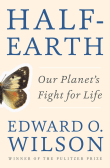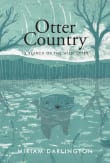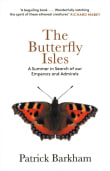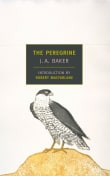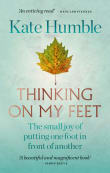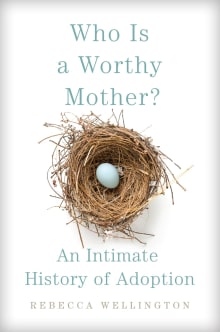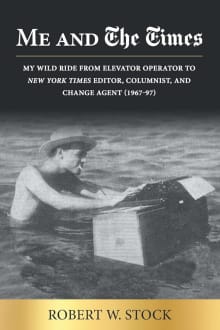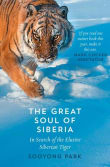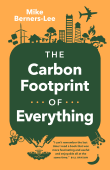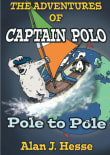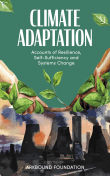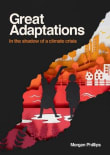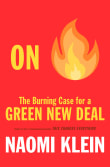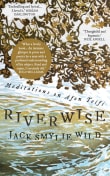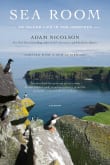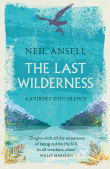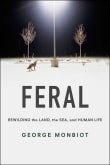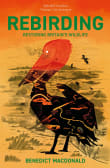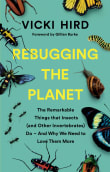Wilding
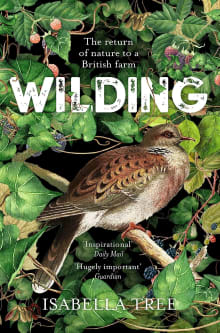
Book description
'A poignant, practical and moving story of how to fix our broken land, this should be conservation's salvation; this should be its future; this is a new hope' - Chris Packham
In Wilding, Isabella Tree tells the story of the 'Knepp experiment', a pioneering rewilding project in West Sussex, using…
Why read it?
9 authors picked Wilding as one of their favorite books. Why do they recommend it?

This book has had a huge impact in the UK, kickstarting a revolution in land management. Ms. Tree's husband inherited a very large estate in southern England, and they tried hard to continue farming in the usual way, raising grain. After a series of failures, economic and otherwise, they finally decided that something radically different would have to be tried and took on the challenge of allowing their land to revert to nature.
The book has been described as 'thrilling, inspiring, and deeply moving,' and it's all of that and a real page-turner.
From Joann's list on self-sufficiency in the oncoming global crisis.

This book by Isabella Tree is the story of how Isabella and her husband, Charlie Burrell, transformed their massive 3500-acre farm in England (100 times the size of our organic farm in France) from an intensively farmed operation that was losing money into a conservation haven and an icon of rewilding or ‘wilding’ as Isabella has termed it. Questions remain about exactly how this model can work without subsidies and/or a heavy emphasis on tourism (they are less than 2 hours drive from London and offer glamping and more) and where/how serious food production fits into this picture.
That said,…
From Caro's list on biodiversity, plants and natural magic.

Wilding is already a classic book on the subject of rewilding – it’s a successful conservation project and it’s a superbly written book.
It tells the story of the wilding of the Knepp Castle Farm, in Sussex, by its owners Sir Charles Burrell and his wife, the author of this book. So this is an insider account of what happened at Knepp, and why, and how, which adds lots of delightful and juicy colour to the bare bones of the story. But the bare bones are exciting enough – there has been a rapid and massive resurgence of nature in…
From Mark's list on UK nature conservation.
If you love Wilding...

This book is an eye-opener. Isabella Tree and her husband Charlie were farming a 3.500-acre farm in West Sussex, England in the nowadays common intensive way. This drove them close to bankruptcy and in a desperate leap of faith they decided to give the entire farm back to nature. This book is their account of this journey, of transforming a vast area of farmland into a haven for nature while still making a living from it.
“Rewilding” has become a bit of a dirty word and one many are scared of. This book shows that “(Re-)Wilding” doesn’t mean humans have…
From Carsten's list on natural history that take you on a journey.

This is the heart-warming and inspirational story of the author’s own rewilding project, on the Knepp estate in West Sussex, UK. I know Knepp well, since it is near to my home. For 20 years the author and her husband have allowed nature to run riot on their 3,500-acre estate. This book captures the magic of a visit to the project itself, a place where wildlife now thrives unchecked, purple emperor butterflies soar in the treetops, and nightingales can once more be heard singing.
From Dave's list on rewilding and the biodiversity crisis.

Isabella Tree and her husband had a farm that was failing financially, so they decided to let it revert to nature and let wildlife take over. It was controversial, especially with their neighbours. But it worked, and the abandoned land gradually became more self-sufficient as the flora and fauna were left to their own devices – becoming, in its way, an island of wild within the crowded, overworked land of southern England. The couple learned vast amounts from experts through the years about such things as the importance of natural processes of decay. Densely packed with information and statistics, it’s…
From Jen's list on wild and abandoned island places.
If you love Isabella Tree...

This book focuses on the importance of preserving ecosystems and wildlife, which is a form of adaptation that is equally as important as the ‘large-scale’ methods. With a lot of focus being given to carbon emissions, ‘rewilding’ landscapes are often forgotten about, yet this can have huge benefits to individual species and their continuation. Isabella Tree provides an inspiring teaching on how small acts can be carried out by individuals in their local areas.
From Emily's list on adaptation to climate change.

When you think about rewilding most people will think about planting trees across the Scottish Highlands, reintroducing wolves to Yellowstone, or restoring the vast American prairies as habitat for buffalo. 'Wilding' is special as it takes an average farm in Sussex, not far from London, and shows what can be done to rewild nature. Within a few years wildflowers grow, insects thrive and birdlife - the signature of biodiversity - reappear like magic. Truly inspiring.
From Neil's list on climate change and our natural world.

Wilding is a real landmark in our move towards living side by side with nature, and a fantastic example of what can happen if we simply let nature take its course, with minimal human intervention. This book tracks the success story of one of the largest rewilding projects in Europe: in a matter of years, this Sussex estate is transformed from intensively farmed agricultural land into a wild landscape home to turtle doves, nightingales, and purple emperor butterflies. In a world where it is all too often difficult to feel hopeful about the future of our planet, Wilding is…
From Leif's list on nature in Britain.
If you love Wilding...
Want books like Wilding?
Our community of 12,000+ authors has personally recommended 100 books like Wilding.


